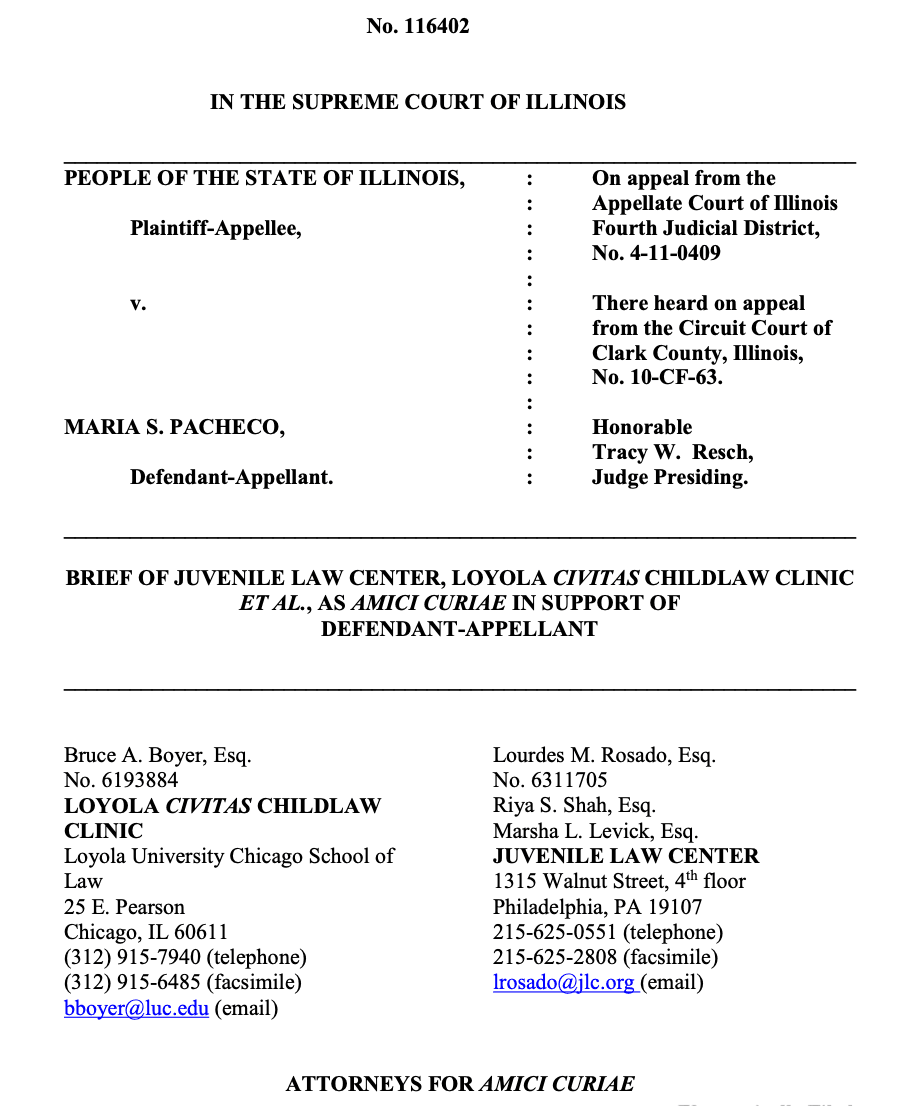
Summary of Argument
Amici respectfully argue that Illinois statutes that require fifteen and sixteen year- old youth charged with murder by accountability to be tried and sentenced in the same manner as adults are unconstitutional in light of recent United States Supreme Court jurisprudence.
As explained in detail infra, Illinois’s transfer and mandatory sentencing statutes are unconstitutional because they 1) create an irrebuttable presumption in favor of culpability and against the child’s capacity for change and rehabilitation and 2) do not allow for individualized sentencing of minors transferred to adult court and convicted of murder by accountability. Unlike Illinois, most state transfer schemes require some individualized determination by a court prior to a youth’s prosecution in adult court. Illinois is an outlier in not allowing a court to consider constitutionally relevant factors before subjecting a youth to prosecution and sentencing in the adult criminal system.
While the intermediate appellate court affirmed Defendant-Appellant Maria Pacheco’s conviction, the majority acknowledged that “it may be time for our supreme court to consider [the] important issue” of whether the holdings in Miller v. Alabama, __ U.S. __, 132 S.Ct. 2455 (2012), Graham v. Florida, __ U.S. __, 130 S. Ct. 2011 (2010), and Roper v. Simmons, 543 U.S. 551 (2005) call into question Illinois statutes that require automatic transfer of minors and the consequent imposition of mandatory sentences. People v. Pacheco, 2013 IL App (4th) 110409, ¶68. Indeed, the dissent below found that the mandatory transfer of youth under the Illinois statute violates the holdings of Miller, Graham, and Roper. Id. at ¶94 (Appleton J., dissenting). As the dissent stated, “While there are juvenile offenders who may, based on the totality of the circumstances, be eligible for adult prosecution, an automatic transfer provision based on age and offense alone, without consideration of the wide variance in the maturity, sophistication, intelligence, and social adjustment of any particular juvenile offender, cannot pass constitutional muster.” Id. at ¶98.
Recent United States Supreme Court case law, Illinois’s variance from the national norm, and the fact that several hundred organizations have denounced the automatic transfer and mandatory sentencing of certain youth as adults, all align with the dissent’s reasoning below. This Court last reviewed Illinois’ automatic transfer laws long before the United States Supreme Court’s watershed decisions of the last eight years that are discussed in this brief. See People v. J.S., 103 Ill.2d 395 (1984); People v. M.A., 124 Ill.2d 135 (1988). This case provides this Court the opportunity to revisit its prior decisions regarding juvenile transfer and subsequent exposure to mandatory sentences in light of this recent United States Supreme Court jurisprudence. See, e.g., Graham, 130 S.Ct. at 2031. Amici respectfully submit that an examination of this statutory scheme against the backdrop of this jurisprudence demonstrates that it is constitutionally defective.